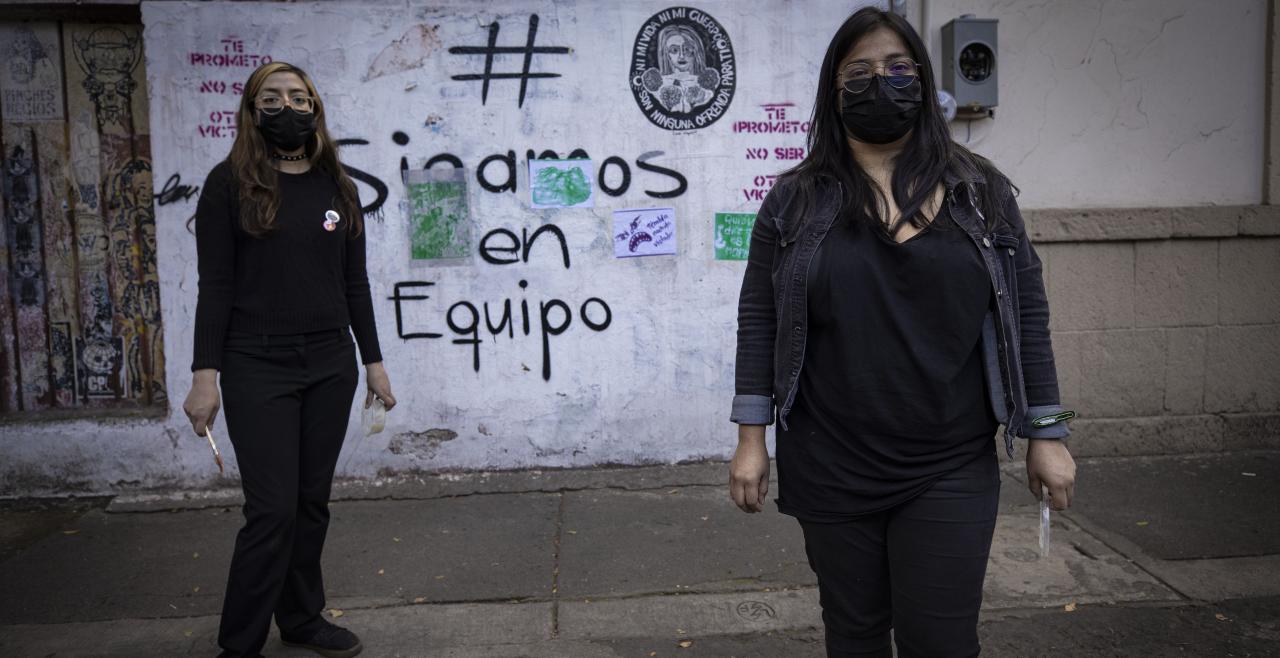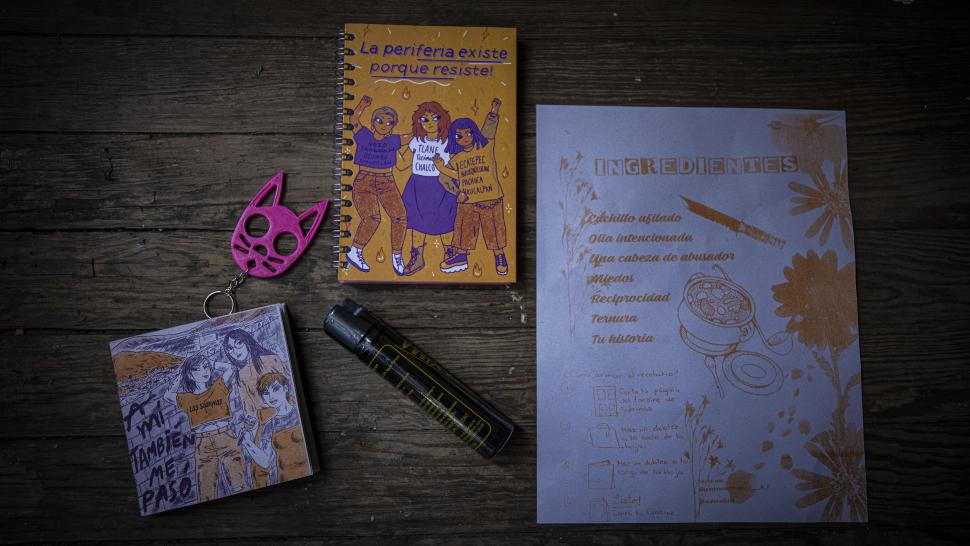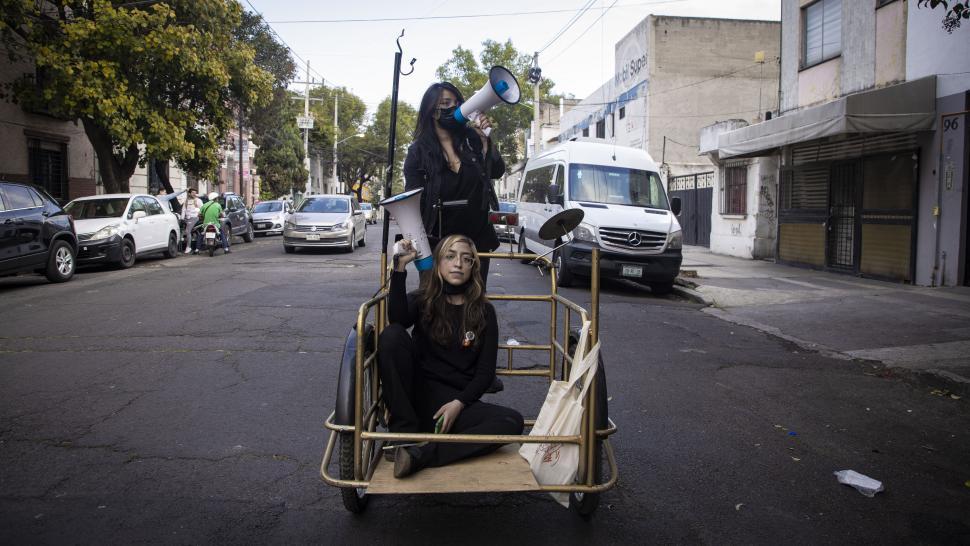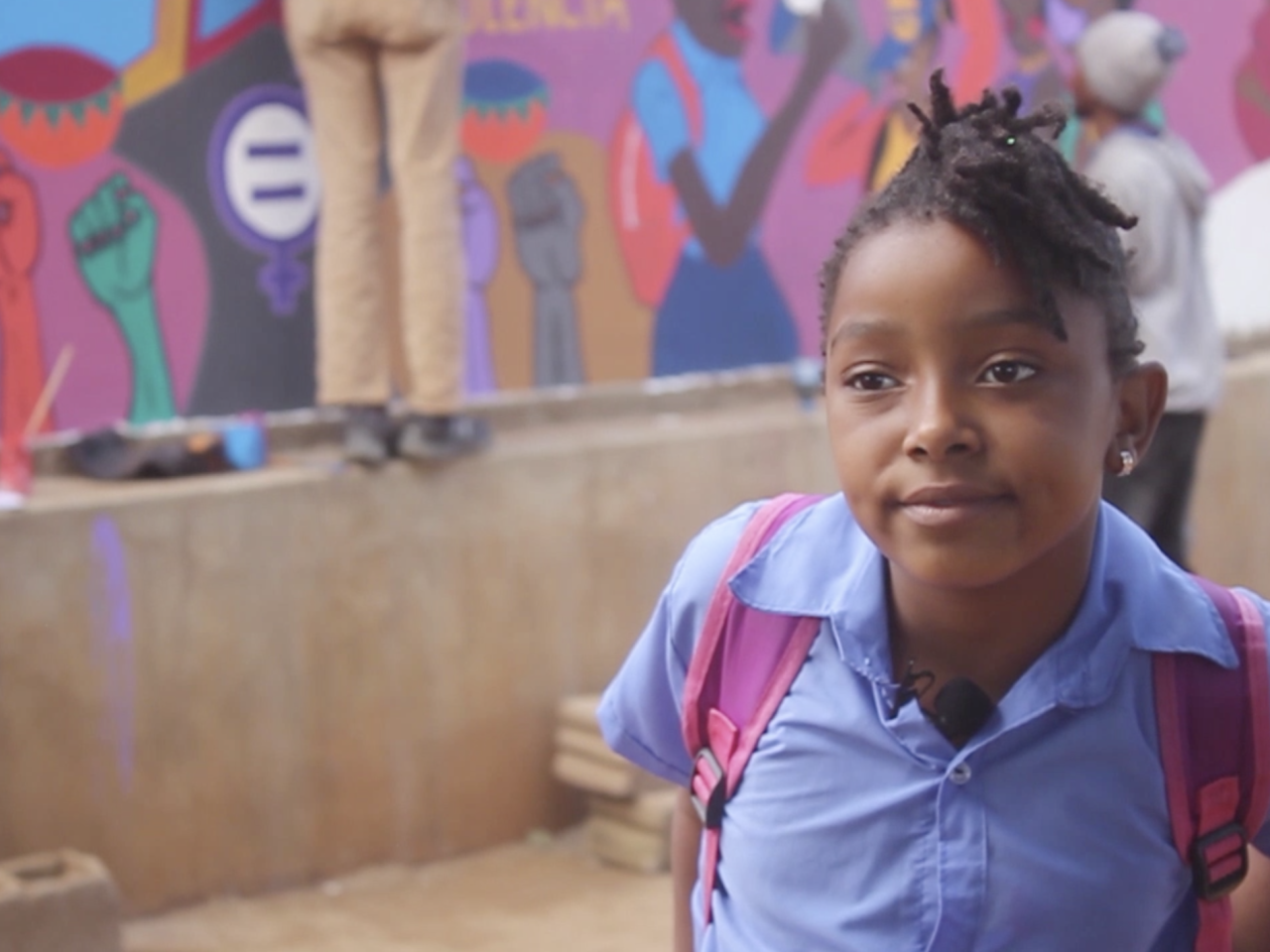In Mexico, 'artivists' raise awareness of sexual violence and support survivors

MEXICO CITY, Mexico - Las Sabinas is a collective of young feminists and 'artivists' from the outskirts of Mexico City whose work aims to raise awareness of and bring an end to sexual violence. Their name is inspired by the Roman myth of the 30 women of Sabinia, who were kidnapped and forced to marry their captors but later helped forge a path towards a society free from violence.
As survivors of sexual violence, Las Sabinas know that incarcerating perpetrators alone does not solve the problem. For them, justice goes far beyond sentencing.
“We want to talk about sexual violence in a way that allows us to understand reparations from a human rights perspective." - Las Sabinas
“We want to talk about sexual violence in a way that allows us to understand reparations from a human rights perspective and to access other forms of justice that have been devalued by a patriarchal and exploitative system,” they say.
Las Sabinas point to a judicial system that too often re-victimizes survivors of sexual violence. From lawyers who are ill-equipped to understand gender-based violence to the shortage of female medical personnel available to perform gynecological exams for rape kits, women survivors are often forced to relive traumatic experiences in the process of obtaining a sentence.
For Las Sabinas, it is important to rethink justice in a way that prioritizes the healing of survivors.
HEALING, JUSTICE AND ACTION
The work of Las Sabinas is divided into two areas: they provide psychosocial counselling to survivors via telephone, informing women about their rights and the services available to them as well as guiding them through their recovery. “Not being able to pay for psychological support does not mean that we cannot have someone to listen to us and guide us,” they say.
They also use 'artivism' practices, such as painting, graffiti and murals to keep sexual violence in the spotlight and spark community conversations around violence.
"The graffiti is also our means of reaching women who may not have access to the internet, to let them know that there is someone who can listen to them." - Las Sabinas
One in five Mexican women has experienced sexual harassment or violence in a public, urban area, according to data from 2019.
“Art allows us to hold a mirror up and to recognize ourselves in the experiences of others,” they explain. “We want people to start talking about sexual violence. It is a topic that is not discussed in many places, or it is touched upon only subtly. The reality is that this is something that has to be talked about. It has to be named."
“[Sexual violence] is a systematic problem, and it must be fought as such. That is why we have to intervene in public spaces, in order to transform this reality we live in ... The graffiti is also our means of reaching women who may not have access to the internet, to let them know that there is someone who can listen to them.”
SMALL GRANTS PROGRAMME
Las Sabinas' advocacy is not without risk. They could be arrested and are vulnerable to harassment from community members and gangs. That's why they used funding from a Spotlight Initiative small grant in 2021 to improve their security procedures and to share experiences with other feminist collectives around the country that work in violent contexts.
“Spotlight Initiative helped us to create a safe space where women could recognize each other, reflect and talk about their experiences without feeling at risk,” they explain. “We learned that safety is generated from women's networks.”
"Every painting, every stencil, every sticker makes a call to survivors of violence: you are not alone." - Las Sabinas
They plan to continue supporting survivors of violence both behind the scenes and publicly, through art.
"It is about taking advantage of the public space to spark dialogues with the community, but also to make evident the support for all women who walk the streets in fear. Every painting, every stencil, every sticker by Las Sabinas makes a call to survivors of violence: you are not alone, we will heal together."
Condensed from original Spanish text by Elena Coll Guzmán and Martina Spataro Tron. Photos: Celsa Calderoni
Find out more about Las Sabinas below:



